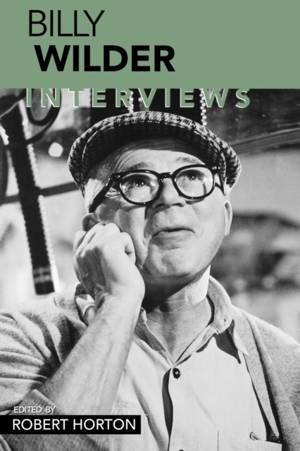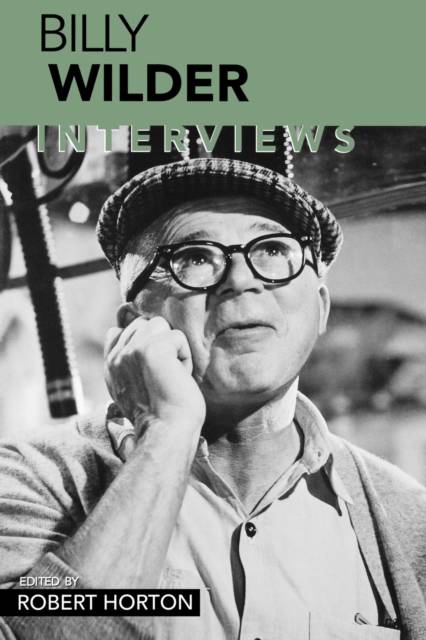
- Afhalen na 1 uur in een winkel met voorraad
- Gratis thuislevering in België vanaf € 30
- Ruim aanbod met 7 miljoen producten
- Afhalen na 1 uur in een winkel met voorraad
- Gratis thuislevering in België vanaf € 30
- Ruim aanbod met 7 miljoen producten
Zoeken
€ 50,95
+ 101 punten
Omschrijving
Billy Wilder: Interviews edited by Robert Horton Always daring Hollywood censors' limits on content, Billy Wilder directed such greats as Marilyn Monroe, Jack Lemmon, Ginger Rogers, Marlene Dietrich, Kirk Douglas, Audrey Hepburn, and Gary Cooper. Billy Wilder: Interviews follows the filmmaking career of one of Hollywood's most honored and successful writer-directors and spans over fifty years. Wilder, born in 1906, fled from Nazi Germany and established himself in America. In collected interviews this book traces his progress through his Oscar-winning heyday of the 1940s to the 1990s, in which he is still witty, caustic, and defiant. He tells the stories behind his brilliant direction of such classics as Double Indemnity (1944), The Lost Weekend (1945), Sunset Boulevard (1950), Stalag 17 (1953), Sabrina (1954), The Seven-Year Itch (1955), Some Like It Hot (1959), and The Apartment (1960), among others. A dazzling raconteur, Wilder spins marvelous anecdotes on the subject of show business and delivers penetrating and instructive observations on his craft. On screen, his special blend of cynicism and romanticism was always expressed in a style that avoided showiness. Robert Horton is the film critic for The Herald in Everett, Washington. His work has been published in Film Comment, New York Newsday, American Film, and the Seattle Weekly.
Specificaties
Betrokkenen
- Auteur(s):
- Uitgeverij:
Inhoud
- Aantal bladzijden:
- 252
- Taal:
- Engels
- Reeks:
Eigenschappen
- Productcode (EAN):
- 9781578064441
- Verschijningsdatum:
- 24/04/2002
- Uitvoering:
- Paperback
- Formaat:
- Trade paperback (VS)
- Afmetingen:
- 156 mm x 229 mm
- Gewicht:
- 367 g

Alleen bij Standaard Boekhandel
+ 101 punten op je klantenkaart van Standaard Boekhandel
Beoordelingen
We publiceren alleen reviews die voldoen aan de voorwaarden voor reviews. Bekijk onze voorwaarden voor reviews.











